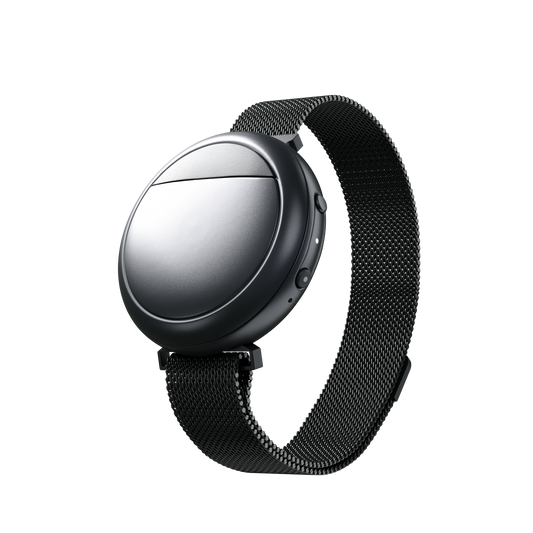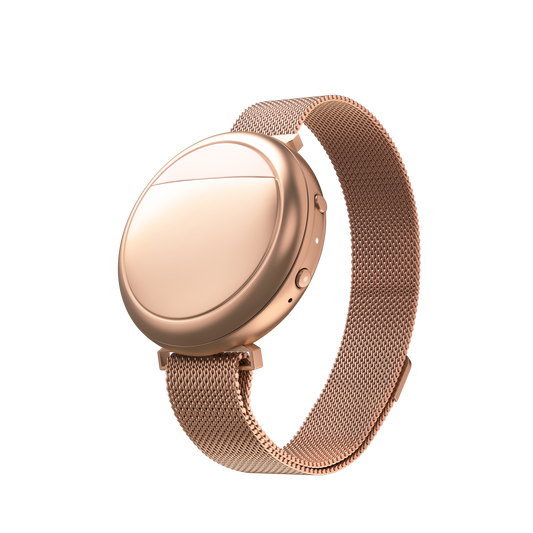During the menopausal transition, your body progressively produces less estrogen. Hormone replacement therapy for menopause is a medication prescribed by a healthcare professional that contains estrogen to replace the estrogen your body is no longer making (or making less of). You may also hear it called hormone replacement therapy (HRT) or menopausal hormone therapy (MHT). Throughout this site, you will mostly see us use the term menopausal hormone therapy (MHT).
The hormones in MHT can be made in a laboratory or come from a variety of plants and animals. There are both synthetic (man-made in a lab) and ‘natural’ (plant/animal compounds that have been altered in a lab) forms of MHT that have been approved by the FDA. The chemical structure is similar to the hormones naturally produced by the body. The body recognizes MHT as estrogen/progesterone/testosterone and uses a dedicated receptor on the cell to accept the MHT in order to perform its dedicated functions.

Not all types of commercially available MHT have been approved by the U.S. Food and Drug Administration (FDA), which is important to know because medications approved by the FDA have been rigorously tested for safety and effectiveness.
What are the different types of menopause hormone therapy?
Hormone therapy has multiple forms.
Estrogen-only. Estrogen-only therapy is prescribed for those without a uterus due to a hysterectomy. It’s sometimes just simply called estrogen therapy.
Estrogen plus progestin. If you have a uterus, estrogen is usually prescribed along with progesterone or to help protect against uterine/endometrial cancer. There’s some evidence that progestin/progesterone can also help improve hot flashes, night sweats, and improve sleep. This type is sometimes called combined hormone therapy.
Testosterone. When combined with estrogen therapy, testosterone therapy may be recommended postmenopause to help with decreased sex drive.
The 2 main ways to take MHT are systemic (higher dose) and low-dose vaginal products.
Systemic hormone therapy
This type of therapy typically contains a higher dose of estrogen that’s absorbed throughout the body and can be used to treat any of the common symptoms of menopause. It’s available in an oral pill, skin patch, gel, vaginal ring, cream, or spray foam.
Low-dose vaginal products
These products minimize the amount of estrogen absorbed by the body. They’re usually only used to treat vaginal and urinary menopause symptoms. They come in the form of a vaginal ring, tablet, or cream.

Potential benefits of menopause hormone therapy
The benefits of taking MHT can include:
- Managing moderate to severe hot flashes and night sweats. Systemic estrogen remains the most effective treatment for relief of hot flashes and night sweats.
- Managing other symptoms of perimenopause and menopause. Estrogen can ease vaginal menopause symptoms, including dryness, itching, burning, and discomfort during sex.
- Preventing bone loss or fractures. Estrogen can help protect against osteoporosis, although most doctors will prescribe another medication first. But estrogen can be an option.
- Managing symptoms of early menopause or estrogen deficiency. Your body has been exposed to less estrogen if you’ve had ovaries removed, stopped having periods before age 45, or lost normal function of your ovaries before age 40. Estrogen therapy may help reduce your risk of certain health conditions.
Like any medication, MHT has potential side effects, and they can vary between the different product formats. Talk to your doctor about the potential side effects and whether MHT is right for you.
If you’d like to talk to a menopause-trained clinician, consider setting up a telehealth appointment with Versalie Care, powered by Wheel.
Things to consider
The concept of hormone replacement therapy is not specific to menopause or reproductive hormones. There are other conditions where doctors prescribe medicine to replace low or lost hormones. Insulin, which is a hormone, is given to people with diabetes who either can’t make insulin or who have developed resistance. Thyroid hormone is given to people who have deficiencies (i.e., hypothyroidism) or who’ve had their thyroid gland removed. In general, the term HRT usually refers to the treatment used for people experiencing menopause. This is also why the term MHT is being used more often and specifically refers to menopausal hormone therapy.
Hormone therapy is a treatment tool that can help alleviate menopause symptoms. To determine if it’s a treatment option that’s right for you, talk to a doctor about your individual symptoms and health risks, your medical history, and whether hormone therapy might be an option for you. Just like menopause itself, treatment is not a “one size fits all” approach. And your decision to take MHT or not can change throughout your journey. Check in with your doctor regularly to see if you still need it.






